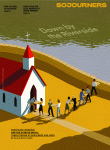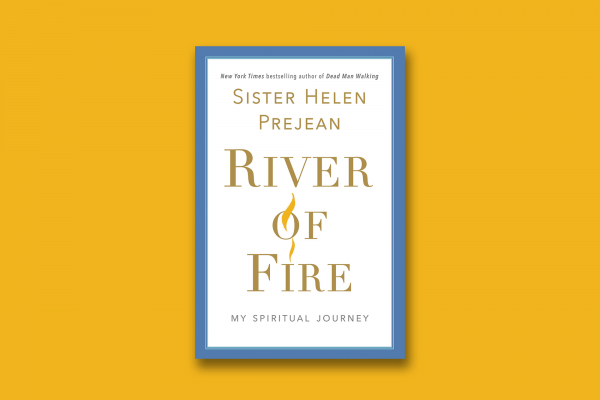THE FINAL WORDS of Sister Helen Prejean’s new book River of Fire are the first lines of her most famous book, Dead Man Walking. But it is a different Prejean we meet in the River pages: Not the heroic anti-death penalty activist we hear on the news, but a young Louisiana woman on fire for God.
Raised in a loving Catholic family, Prejean entered the novitiate in the strict 1950s. Her descriptions of almost military-like training—no friendships allowed, eyes modestly downcast, sinners wearing vices written on cards around their necks—made me grateful I never became a nun. Once Prejean took her final vows, however, she only had a few years to adjust to the restrictive life before the Catholic Church experienced the seismic shift of the Second Vatican Council.
Prejean makes this transformative time come alive, even relaying how two men almost came to blows over the changes at a parish discussion group she facilitated. Vatican II meant no more Latin Mass or memorization of the catechism. Catholics were now expected to be truly educated about their faith and motivated more by love than fear. It also meant more freedom for nuns such as Prejean. At a conference on Vatican II, she fell in love with a priest. For some years, they explored the “third way,” having a romantic relationship that’s not consummated, before Prejean ended the relationship.
The most striking aspect of the book is not this clandestine romance but Prejean’s opposition through the 1970s to “in-your-face activist nuns,” the very type of nun she is accused of being today. Prejean believed in prayer and charity alone, that it wasn’t for nuns to try to make heaven on earth.
For the first half of her life, she served only middle-class white communities, blissfully ignorant of systemic racism. She believed that it was God’s will that some people be poor. Through a fellow sister’s powerful teaching, however, she came to understand that Jesus’ good news actually empowered the poor in their struggle for justice, and that her prayers and charity weren’t doing one iota to help.
She writes, “In a democracy like the United States, there’s no such thing as being apolitical. If we sit back and do nothing, leaving all the policy making to others, that is, in fact, a position of support for the status quo, which is a very political stance to take.”
If Prejean could spend the first 40 years of her life ensconced in white privilege, then change so greatly as to take on one of the mostly racially oppressive systems in the United States, there’s a chance for the rest of us. Maybe conversion is ahead for us all. River of Fire gave me hope.

Got something to say about what you're reading? We value your feedback!







